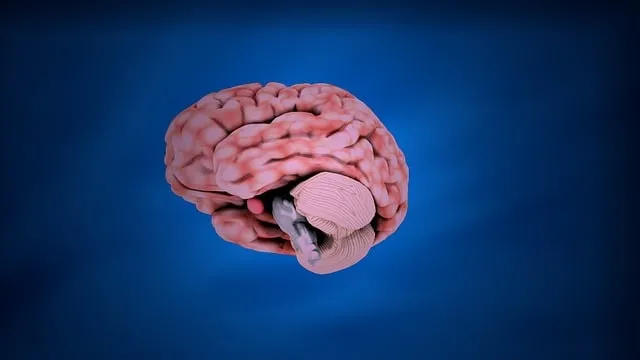Boulder Kaiser Permanente is revolutionizing mental health support with its Recovery-Focused Management (RFM) approach, which focuses on resilience and strengths. They offer a holistic, community-focused strategy including workshops, support groups, and podcasts, integrating mental wellness into overall health. Their exercises for mental fortitude, guided by evidence-based practices and Mental Health Policy Analysis, empower employees to build resilience and navigate challenges effectively. Continuous evaluation and participant feedback ensure the program's impact, with significant improvements in areas like social skills training and stress reduction.
In today’s fast-paced world, resilience is key to navigating life’s challenges. Boulder Kaiser Permanente has pioneered an innovative approach to mental health by integrating RFM (Resilience, Flexibility, and Mastery) exercises into their programs. This article explores how understanding RFM can significantly enhance mental well-being. We delve into Boulder Kaiser Permanente’s successful strategy, provide practical exercises for building mental fortitude, and offer a framework for measuring the impact of these initiatives. By adopting these practices, individuals can cultivate resilience, ensuring they emerge stronger from life’s storms.
- Understanding RFM and its Impact on Mental Health
- Boulder Kaiser Permanente's Approach to Resilience Building
- Implementing Effective Exercises for Mental Fortitude
- Measuring Success and Continuous Improvement
Understanding RFM and its Impact on Mental Health

In the realm of mental health support, Boulder Kaiser Permanente has been at the forefront of revolutionary practices, one such approach being RFM (Recovery-Focused Management). This framework shifts the narrative from traditional pathologies to a strengths-based perspective, empowering individuals on their journey to recovery. By understanding that resilience is not an innate trait but can be cultivated, mental health professionals can implement effective strategies for enhancing client resilience using exercises tailored to their unique needs.
The impact of RFM extends beyond individual therapy sessions; it influences the broader mental health care landscape. Incorporating risk management planning, as part of a holistic strategy, ensures that mental wellness coaching programs are not just reactive but proactive in nature. Moreover, public awareness campaigns can play a pivotal role in destigmatizing mental illness and encouraging individuals to seek help, ultimately fostering a more supportive environment for recovery and resilience building.
Boulder Kaiser Permanente's Approach to Resilience Building

Boulder Kaiser Permanente has pioneered an innovative approach to mental health and resilience building, focusing on holistic well-being for their employees and community. They understand that mental wellness is a cornerstone of overall health, so they’ve developed comprehensive programs aimed at fostering resilience in the face of life’s challenges. Through a multi-faceted strategy, they offer a range of resources, including workshops, support groups, and even a Mental Wellness Podcast Series Production designed to educate and inspire.
This approach emphasizes creating a supportive environment where individuals can learn coping mechanisms, build strength, and navigate stress effectively. By integrating mental health awareness into their culture, Boulder Kaiser Permanente encourages open conversations about resilience, promoting a sense of community and empowerment. Their unique initiatives have set a benchmark for organizations prioritizing employee well-being and mental health awareness in the modern workplace.
Implementing Effective Exercises for Mental Fortitude

Implementing effective exercises for mental fortitude is a key component of any comprehensive resilience-building program, particularly in organizations like Boulder Kaiser Permanente where employee well-being is paramount. These exercises should be designed to foster not just adaptability, but also a deep sense of control and purpose amidst challenges. Mental Health Policy Analysis and Advocacy plays a crucial role here by ensuring that the chosen activities align with evidence-based practices and current mental health Education Programs Design trends.
The inclusion of Crisis Intervention Guidance is essential to create a safe space where individuals can engage honestly and openly. Exercises should range from mindfulness practices and stress management techniques to cognitive reframing and social support initiatives. By integrating these strategies, Boulder Kaiser Permanente can build a culture that prioritizes mental health, empowering employees with the tools they need to navigate life’s storms with resilience and fortitude.
Measuring Success and Continuous Improvement

Measuring success and continuous improvement are vital components of any effective resilience-building program, particularly when addressing mental health concerns in organizations like Boulder Kaiser Permanente. The journey to enhanced resilience involves a dynamic process where progress is assessed, lessons learned, and adjustments made. By implementing robust evaluation methods, the program can gauge its impact on participants’ ability to cope with challenges and adapt to changing circumstances. This data-driven approach allows for refining exercises and strategies, ensuring they remain relevant and impactful over time.
Regular feedback from participants plays a crucial role in this process. It provides insights into what works best for different individuals, enabling the program to tailor its offerings. Moreover, comparing outcomes with initial benchmarks helps identify areas of significant improvement, such as enhanced social skills training, improved mood management, and more effective stress reduction methods. This continuous cycle of evaluation and refinement is key to fostering a resilient organization-wide culture at Boulder Kaiser Permanente.
The implementation of RFM (Resilience, Flexibility, and Mindfulness) exercises, as demonstrated by Boulder Kaiser Permanente’s innovative program, offers a powerful approach to enhancing mental health. By focusing on these key aspects, individuals can develop the fortitude to navigate life’s challenges. This article has explored the significance of RFM in promoting resilience, highlighting successful strategies from Kaiser Permanente, and providing practical tips for effective implementation. By adopting these practices, Boulder Kaiser Permanente is leading the way in fostering robust mental well-being, showing that with the right tools and support, individuals can thrive even in the face of adversity.






